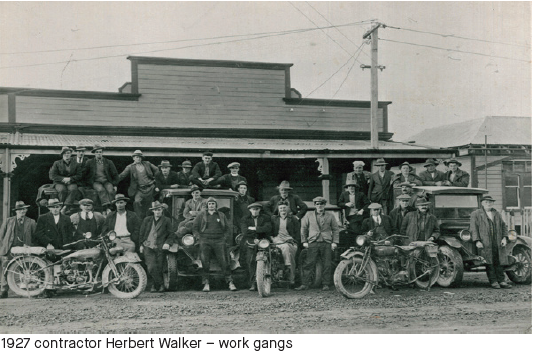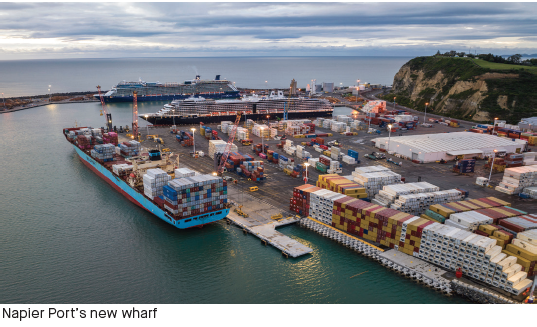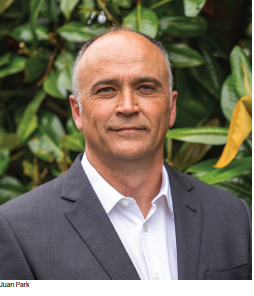In the early days of electricity, power generation, and supply were managed by local Councils or Municipal departments. Hastings first gained electricity in 1912.
The Electric Power Boards Act of 1918 allowed Power Boards to provide electricity to areas not served by local governments. In 1923, backed by Hawke’s Bay County, a committee formed a Power Board to manage electricity distribution across the county. Napier, Hastings, Havelock North, and Taradale, all self-sufficient in power generation, agreed to buy from the new Board, along with two freezing works. These commitments led to the establishment of the Hawke’s Bay Electric Power Board (HBEPB) on 19 June 1924, with its first meeting held on 27 September 1924.
The HBEPB aimed to provide electricity to rural areas, as urban centres like Napier, Taradale, Hastings, and Havelock North already had their supplies. From modest beginnings in 1924, the Hawke’s Bay Electric Power Board’s main goal was to establish the first electrical networks in the Hawke’s Bay region.

Over subsequent years the face of Unison has changed many times from its formation as the Hawke’s Bay Electric Power Board. However, the commitment to powering our regional economy and meeting the needs of our business community has remained constant.
100 years on Unison continues to play a part in the daily lives of Hawke’s Bay communities.
Electricity has powered our regional growth, prosperity, and livelihoods. These days we tend not to think much of it until it’s not there; a confronting reality we all grappled with through the devastation of Cyclone Gabrielle.
Early opportunities for electrification in rural areas of Hawke’s Bay coincided with fruit exporting gaining traction and enabled the electrification of shearing sheds. Over the years new initiatives have helped industry thrive in Hawke’s Bay, like refrigeration becoming more prominent which enabled the construction of cool stores and electrical production lines could be installed improving efficiency for local food producers.
Some of the largest customers, who employ a significant number of people in Hawke’s Bay, have a close relationship with Unison.
Helping businesses thrive – a snapshot of Unison’s industrial Hawke’s Bay customers
Most commercial operations require bespoke access to power – it’s more complex than simply connecting directly to the national network like you would for residential customers. Unison facilitates the best access by thoroughly planning for future developments and consulting with businesses to design solutions to meet their specific needs. Often those needs can also be of benefit to the surrounding network. This approach forms a major part of Unison’s 10-year regulatory asset management plan to ensure the network stays in step with future requirements.
Over the last 100 years, Unison has supported critical infrastructure operations like the Hawke’s Bay Fallen Soldiers Memorial Hospital and Napier Port, and the many food producers in the region including Heinz Watties and McCain Foods or the former freezing works at Tomoana.
Unison plays a role across a diverse range of operations through customers like Ravensdown, Woolworks, and Ziwi to name a few. They all have bespoke requirements and Unison works alongside them to develop the right solution to meet their power needs.
Napier Port

A crucial component of Napier’s economy, Napier Port is a major power consumer that has worked closely with Unison for many years. From the recent construction of Te Whiti Wharf (or 6 Wharf) to their future decarbonisation plans, Unison will continue to be a key partner.
Te Whiti Wharf future-proofs Napier Port, allowing it to handle more and larger ships, as well as enhance its operational performance. This expansion required additional connections with an 11,000-volt supply added to power their new MoorMaster system, new and existing light towers, a data hub, and a seismic monitoring system.
Unison is viewed as a key enabler to Napier Port on its journey to further decarbonise its operations. Initial plans include transitioning to seven battery electric forklifts to reduce emissions. For the long term, Unison continues to work closely with Napier Port as it explores decarbonisation pathways through electrification.
Woolworks, Awatoto
Woolworks, New Zealand’s only wool scourers, operates the world’s largest wool processing facility at Awatoto.
Woolworks reopened after significant cyclone damage, emerging stronger and more advanced after a year of rebuilding. With a modernised facility, they are not only back to full production but have also started their decarbonisation journey. A key milestone in their sustainability efforts is the recent conversion of a gas-powered boiler to an electric supply.
Woolworks is focussed on the future and aims to decarbonise their operations further. Unison is proud to support Woolworks by coordinating and preparing the necessary capacity to enable this transition on the network.
Ziwi, Awatoto
Ziwi, the New Zealand-founded premium pet food processing business constructed a new state-of-the-art pet food processing kitchen in Napier. The new facility doubled its processing capacity and brought production from its three existing Tauranga-based plants to the new Awatoto processing kitchen.
Unison’s plans for upgrades to the Awatoto Zone substation to enable Ziwi’s growth were well underway when the cyclone interrupted things, resulting in a rethink on the appropriate solution for the area.
A clever temporary redesign of the substation was devised by the Unison engineers which reduced the impact of the delivery of work and allowed a faster recovery from the cyclone damage.
Now as the future of the area is becoming clearer plans are in place to further bolster resilience over the long term while meeting the needs of existing customers, helping facilitate their decarbonisation efforts (through process heat conversion) and increasing network security.
Forecasting Future Industrial Growth & Business Support

In 2023, Unison launched a comprehensive project to meet with customers and understand the plans and needs of larger industrial businesses as they transition to cleaner energy sources. This project provides valuable data for network planning, growth models, and Unison’s decarbonisation roadmap.
With new business developments planned and ongoing decarbonisation efforts by various customers across the region highlight the importance of strong collaboration for ensuring a reliable and sustainable electricity supply.
Jaun Park, Chief Executive Unison Group says “Unison has a century-long history of supporting local businesses in Hawke’s Bay and we’re proud to be consumer owned in a region boasting some of New Zealand’s leading industries. As the world advances towards greater electrification, Unison plays a critical role in powering industry growth and supporting businesses on their decarbonisation journey.
I want to thank the Hawke’s Bay business community for their support and strong partnerships over the last century, and I look forward to what the future brings for our thriving region.”



